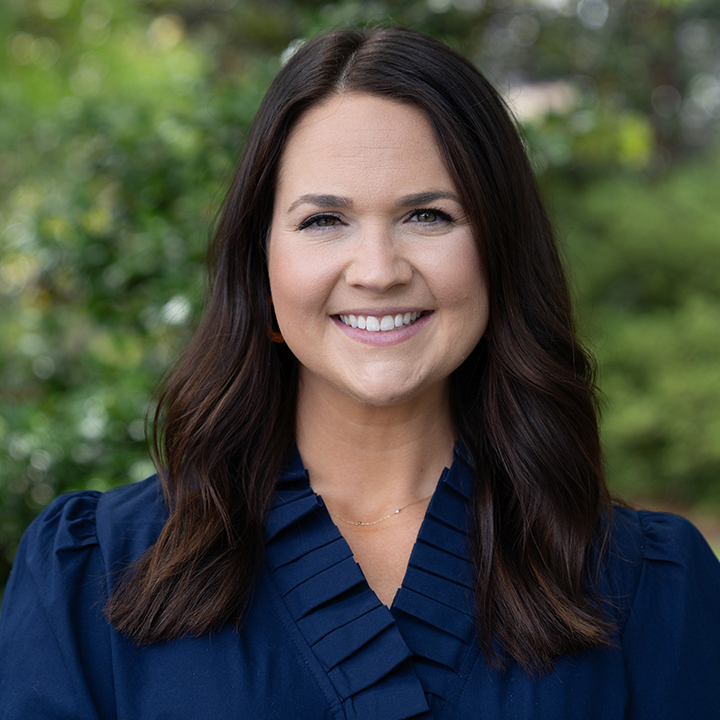
Advising
War Eagle
On behalf of the faculty, staff, and students, I’m excited to welcome you to the College of Agriculture! We are looking forward to having you join us on Ag Hill and meet all the wonderful people who make up the College of Agriculture (COA) Family. As a student in the COA, you will have access to outstanding faculty instructors who care deeply for students and provide them with exceptional instruction. These faculty are also research leaders in their field, and they will share their discoveries with you! I am eager for you to engage in one or more of the many opportunities we offer students – study abroad, undergraduate research, spring break trips, student competitions, clubs, internships, and more!
Our Academic Advisors and our Student Services Office staff have been working hard to bring you the best experience we can. Please know that you are in good hands with an impressive group of people who care about you very much. I look forward to seeing you during your time with us.
Welcome to the College of Agriculture and War Eagle!
Amy N. Wright, Ph.D.
Associate Dean for Instruction
GOT A QUICK QUESTION?
COA’s Ag Peer Mentors are here to help! Text/call (334) 740-3661 or email agpeer@auburn.edu as a first step to receive guidance from a student’s perspective regarding advising and academic matters.
Who’s my Advisor?
As a student in the College of Agriculture, you are assigned an advisor from your academic department or program.
To find out who your advisor is, log in to AU Access. In AU Access, your advisor information will be on the right-hand side under the Academic Profile section. Should you have any questions about your Advisor Assignment, please contact the Director of Advising for more information.
Your advisor is a valuable resource for you during your time at Auburn University. In addition to providing you with general advising information, your advisor can help you register for courses, answer frequently asked questions, give academic support, develop a course plan of study for graduation, provide academic policies, locate and/or prepare for internships, part-time work and career opportunities.
College of Agriculture Advisors
Connect with the right COA Advisor by your academic department or program below:
Agricultural Communications Advisor

AMY BROCK
alb0158@auburn.edu
334-844-3202
Director of Academic Advising
Upchurch 244
Auburn Univ, AL 36849
Agricultural Economics Advisor

ASHLEY ASTON
whatlab@auburn.edu
334-844-5604
Academic Advisor II
Dept. of Ag Econ & Rural Sociology
Haley 4024
Auburn Univ, AL 36849
Animal Science Advisor - Last Names (A-L)

MALLORY BECK, M.Ed. – Last Names (A-M)
mjs0050@auburn.edu
334-844-9117
Academic Advisor I
Upchurch 234
Auburn Univ, AL 36849
Animal Science Advisor - Last Names (M-Z)

JASEY HERRINGTON
vjb0004@auburn.edu
334-844-8146
Academic Advisor I
Upchurch 240
Auburn Univ, AL 36849
Biosystems Engineering Advisor
CROP, SOILS, & ENVIRONMENTAL SCIENCES, Applied Biotechnology Advisor

KELLI BAGWELL
bagweke@auburn.edu
334-844-1610
Academic Advisor I
Funchess 230A
Auburn Univ, AL 36849
FISHERIES, AQUACULTURE, & AQUATIC SCIENCES, Poultry Science Advisor

TRACY COLLIER-CLINE, M.Ed., MAQ
Auburn Univ, AL 36849
Horticulture, Agricultural Science Advisor
Advising Information
COA Advising Expectations
In addition to the Auburn University policies and expectations, you will have additional college and advising expectations.
Learning Outcomes
Academic advising plays a key role in students’ understanding of the college and university environment. In ongoing conversations with advisors, students will:
- Develop skills in locating and effectively using information and resources that facilitate a successful academic experience
- Describe how academic work and experiences outside the classroom contribute to their overall career goals
- Cultivate a habit of lifelong learning
- Evaluate their own learning and be able to articulate areas of achievement and areas in which the student needs more growth/learning
- Create a plan for graduation that includes high-impact out-of-the-classroom experiences
Advisor Responsibilities
Advisors will:
- Maintain a respectful, supportive, and interactive academic advising environment that encourages exploration, develops student’s passions, and fosters academic and career growth
- Be knowledgeable about academic requirements and graduation expectations for the majors they advise and educate students about these requirements
- Be knowledgeable about academic and campus policies and procedures and educate students on how to find these requirements
- Refer students to campus resources
- Foster an environment of self-advocacy, but also serve as an advocate for students when appropriate
- Maintain student confidentiality in accordance to the Family Educational Rights and Privacy Act (FERPA)
- Empower students to take responsibility for their own academic, personal, and career success
Student Responsibilities
Students should:
- Meet with their advisor at least twice a year for advising to have their PIN reset
- Be respectful. Students should treat advisors with the same level of respect that they would like to be treated. This includes:
- Making appointments in a timely manner, showing up on time, and being prepared
- Cell phones and other electronic devices are put away during appointments
- Be an active participant in all advising meetings
- Check their AU email daily
- Follow through with advisor referrals to campus resources
- Take responsibility for their academic progress by knowing how to use the available resources, reviewing and being aware of their curriculum model, and understanding how their curriculum works as a unit for graduation (pre-requisites, co-requisites, sequences, when courses are offered)
- Communicate openly, honestly, and professionally about any issues regarding their academic performance
- Be prepared to discuss goals, passions, challenges, and successes
- Work with their advisor to create an academic success plan and a graduation plan
- Utilize campus resources
- Ask questions
- Understand that their advisor can provide them with advice and tools to be successful, however, it is up to the student to complete all requirements and make appropriate choices for completing their degree
Advising Syllabus
Your advisor has created an Advising Syllabus for your use. It is located on the Major Information page. Please read this document carefully. It contains important information for scheduling and preparing for your advisor appointments each semester.
Need to Schedule an Advisor Appointment?
When… Anytime!
At least once a semester you will receive an email from your advisor asking you to make an appointment. You must meet with your advisor at least once a semester.
Advise Assist is an online resource to help you schedule advising, tutoring, and other academic support services. Click on the link to make an appointment or you can follow the steps in the handout below.
AU Advise Assist Student Scheduler Handout (PDF)
Looking for the Long-Term?
GET AN OUTLOOK HERE WITH OUR LONG-RANGE PLANS
Our departments have curated long-range plans to help you sort your future schedules. Follow the link below for detailed information.
AU Policies for Academics, Student Grades, Financial, Information Technology, Parking, Housing, Residence, Student Conduct & More
Follow this link to everything you need to know about Auburn University Student Policies.
Advising & Registration FAQ
What does an advisor do?
COA advisors prepare students to be engaged, global leaders through holistic, appreciative advising that teaches students how to navigate the academic, social, and career developmental needs at Auburn University. Advisors will prepare and mentor students to meet their full potential by challenging them to grow continually through lifelong learning.
COA advisors believe in the Auburn family as such, they believe in a caring, inclusive, and collaborative environment for students. We seek to inspire and empower students by serving as advocates for student’s needs while leading them toward a path of self-authorship and advocacy. To do this, advisors collaborate with students in one-on-one appointments to form supportive relationships that allow students a safe space to engage in self-exploration and planning.
How often do I get to meet with my advisor?
You will need to see your advisor at least once a semester to check-in and have your PIN reset for registration.
However, you can meet with your advisor any time you have questions that you cannot answer, to check-in, to follow up, to share news, if you have a problem you don’t know how to solve, etc.
How do I add a course?
You may add courses on AU Access through the fifth (5) day of class.
After the first day, you must contact the department offering the class. Only the departments can add students to classes after the first day. Advisors cannot add students to courses.
Departments set their own deadlines for adding classes. Some do not add after the first day. If you want to add, you must do it quickly. No classes may be added after the fifteenth day.
- Log in to AU Access
- My Academics tab
- Look up Classes or Tiger Scheduler to find the CRN of the course(s) you want to add
- Add/Drop classes
- Enter PIN if necessary
- Select the term
- Type the CRN into the box below (one CRN per box)
- Hit submit
How do I drop a course?
You may drop a course until the 15th class day with no record on your transcript.
From the 16th day until the final drop date, you may drop for any reason, and a “W” will be on your transcript. A “W” means you were in the course but withdrew. Although you do not want a pattern of Ws on your transcript, one or two throughout your college career should not be a concern.
Although dropping before the drop date has no academic penalties, you will not get any money back, and if you drop below 12 hours, it could affect your financial aid, scholarships, or insurance. Please check with your insurance company and Auburn’s Financial Aid Office before dropping below 12 hours.
Before the drop date (see link above), be realistic about your chances of obtaining the grade you want in a course. Dropping may be the best idea.
Also, be certain to check your schedule and be sure that you are registered only for courses you plan to finish. You are responsible for knowing your enrollment status at all times.
After the final drop date, you may not drop a course except in the most extenuating circumstances, with documentation and permission from the Dean’s Office. Please do not petition for a drop to the Dean’s Office unless you have experienced a significant illness, a death in the immediate family, or something similar.
You may NOT drop after the drop date because you are failing or do not need the course. Most students seeking to drop classes late only want to avoid getting a poor grade. This will not be approved.
Even if your drop request is approved, if you are failing the course at the time of the drop, your professor may assign a WF, which will appear on your transcript and will calculate your GPA as an F.
Steps to Drop a Course:
- Log in to AU Access
- My Academics tab
- Add/Drop classes
- Enter PIN if necessary
- Select the term
- In the drop-down box beside the course you want to drop, select drop on the web
- Hit submit
Why do I have to meet with my advisor every semester?
Regularly checking in with your advisor is important for many reasons:
- Check your academic progress
- Ask questions about internships, study abroad, undergraduate research, and more
- Your advisor cares about you, your goals, and your experiences at Auburn and in the College of Ag
- Get a graduation audit
- Learn about opportunities
What is a pre-requisite course?
Pre-Requisite – A course that must be taken before you can take the next course.
Example – You must take CHEM 1030 before you can take CHEM 1040.
What is a co-requisite course?
Co-Requisite – A course that must be taken at the same time as another course
Example – You must take AGEC 3100 and STAT 2510 together.
How many classes should I take?
To graduate in four years, you must complete 30 hours each semester (8-10 classes). That’s 15 hours a semester (4-5 classes). But you can break that up however you like (12 in the fall, 15 in the spring, and 3 in the summer or any other combination).
Ideally, you would take between 12-18 hours every semester. However, each student has unique needs. You should work with your advisor to create the best plan for you each semester.
What does TR mean? (MWF)?
These indicate when (what days) your classes will meet. MWF means Monday, Wednesday, and Friday (or any one of those days if it is just one letter). TR means Tuesday and Thursday (or one of those two days if just one is listed).
What does the 7 mean at the end of a Course Code?
This means that the course is an honors course and only open to students in the Honors College.
What is Tiger Scheduler?
Tiger Scheduler is way to visualize and plan your semester before or during registration. It is a tool only. You will still need to go to Add/Drop Classes to finalize your schedule.
Your advisor can also show you a suggested schedule. You can also save favorite schedules. It will generate CRNs for you to add to the Add/Drop page.
Tiger Scheduler can be accessed on your AU Access homepage.
What is my PIN?
You will need your PIN for registration. It is always 111111. However, if you have not met with your advisor to have your PIN set to 111111. You will not be able to register.
HOW DO I APPLY THE GRADE ADJUSTMENT POLICY (GAP)?
Read the COA Grade Adjustment Policy (GAP), follow instructions, and complete the worksheet to submit a request.
I have a hold on my account. What does that mean?
It depends. You can click on the Hold in AU Access to learn more about the hold and who placed it. You will need to reach out to those offices to find out more information.
In general, having a hold on your account will prevent you from registering. Some holds might also prevent you from doing other things (ordering an official transcript, dropping a class, or graduating for example).
How to Help Your Student Transition to College
What to be aware of and how to help your student start their college life. Please visit this page for Advising Expectations and FERPA information:
Visit Ag Hill

Visit Campus In-person or Virtually!
Majors & Minors
Graduate Degrees & Programs
Admissions
Clubs & Organizations
Career Discovery
Becoming an Auburn Ag Student
Leadership Opportunities
Student Resources
Student Services
Parents & Family
Apply Now
Contact
College of Agriculture
Student Services
105 Comer Hall
Auburn Univ, AL 36849
(334) 844-4768
agadvis@auburn.edu


